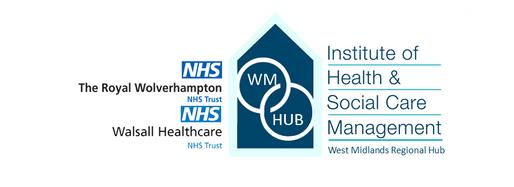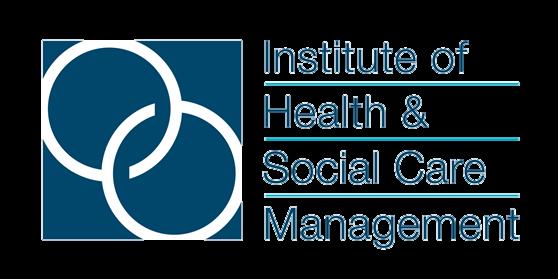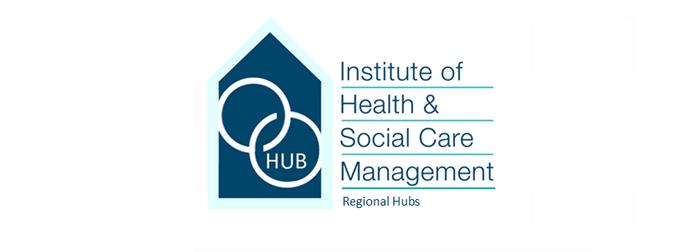
9 minute read
West Midlands - The Importance of Leadership Training at Undergraduate Level for Allied Health Professionals
The importance of leadership training at undergraduate level for Allied Health Professionals
Author : Dr Nicky Eddison, Dr Ros Leslie, Alice Banner and James Smith Trust : RWT

The NHS needs great leaders at every level to ensure it delivers high quality care. The performance of hospitals and the quality of care service users receive are all influenced by the quality of its leadership. The NHS long term plan sets out to strengthen and support good, compassionate and diverse leadership at all levels. Leadership is not the dominion of the most senior staff, there is an increasing recognition that all employees need to be leaders. Thus, leaders come in many different forms and can operate at any level.


July 2022



Given the importance of leadership to enable the health service to thrive, the NHS has developed several models of leadership including the Clinical Leadership Competency Framework model5 and The NHS Leadership Academy’s Healthcare Leadership Model. The aim is to build leadership awareness and capability in undergraduate training programmes5. Too often the NHS focuses solely on the clinical development of employees, once they excel clinically, they are naturally promoted to a management/leadership role in the unsubstantiated belief that someone who excels clinically will excel as a leader, in reality, management and leadership require a completely different skill set. Often, the change from a clinical position to a management position occurs without any leadership training. Therefore, it is essential that leadership is incorporated within the mainstream curriculum of healthcare undergraduate courses and staff are offered continued leadership development throughout their career.
Covid-19 meant that innovative placement offers were required. As part of its 2020-21 Clinical Placement Expansion Programme (CPEP) project the Royal Wolverhampton NHS Trust’s Physiotherapy service, in collaboration with Keele and Wolverhampton universities, developed a leadership placement for undergraduate physiotherapy students.


July 2022


The leadership placement introduces the students to the concepts of leadership, the various theories of leadership styles, exploring topics such as unconscious bias, self-awareness, conflict, the ladder of inference, change management, conflict, compassion and empathy, personality types and communication styles, to name a few. The students also have the opportunity to observe a variety of leaders in their everyday roles, observing leadership in action under a variety of conditions. The aim of the placement is not only to introduce concepts of leadership but to break down the misconception that only certain personalities can excel at leadership. We need our graduate Allied Health Professionals to be emersed in leadership at the very beginning of their careers, to embrace it, to know they have a pivotal role and a wider influence within the organisation. We need to develop their leadership skills as a core requisite of their role, at all levels, not as a luxury add-on for the select few.


July 2022


A student perspective (James Smith and Alice Banner)
We believe that the leadership placement had a positive impact on our physiotherapy training. The placement gave us an opportunity to experience what it is like to be an Allied Health Professional (AHP) leader, and the range of different non-clinical job roles available. We also received several leadership sessions, in which we learned about self-awareness, passive-aggressive behaviour, personality, and other relevant theories to leadership. Although these were taught sessions, they incorporated lots of discussions. This was a great learning experience, as it meant that we were able to hear about Nicky’s experiences and relate them to our own past, and potentially future, experiences.

As a result of these sessions, we both feel that our self-awareness has increased, and we are now more reflective of our behaviours and biases. It was also emphasised that leadership can take place in many roles, and not just management. The skills we have learned can be applied to different areas of our life, such as within our families, sports teams, studies and in the workplace.


July 2022


During our time on placement, we had many opportunities to work with and interview different members of staff. It was interesting to discover the wide range of career paths that lead to management positions and how many had never planned to take a non-clinical role. It was also clear to see there was a variety of personalities and leadership styles within the team, showing there isn’t a ‘one size fits all’ approach to leadership.
As a result of the placement, we also have the opportunity to continue working with the Trust beyond our placement. We are both student representatives for the Black Country Preceptorship Programme. This involves attending meetings and contributing to discussions, to provide a student’s perspective.
We both feel it was a privilege to have this placement, as most of the students in our cohort will not have this exposure, and thus will not gain the skills we have acquired. It also gave us perspective on the range of career opportunities for AHPs within the NHS, and the structure of an NHS Trust. Because of this placement, we both feel that we have a ‘head start’ over other students if we want to pursue a management role, as we have a better understanding of the NHS structure, experience of working in management, and knowledge of what skills are required to be an effective leader.


July 2022



Higher Education Institute Perspective – School of Allied Health Professions, Keele University
Helen Edwards - Lecturer in Placement Support & Development Caroline Nichol – Lecturer in Placement Support & Development Kelly Green - Director of AHP (Allied Health Professions) Placements

We are excited and fully support leadership placements being a normal attribute and diversification to student placement profiles, as leadership is identified by the Chartered Society of Physiotherapy (CSP) as a crucial element of the 4-Pillars of Physiotherapy practice. Leadership requires essential skills, including communication, and confidence in taking the lead and influencing change, which is transferrable to diverse environments for future practice and job opportunities, encompassing both clinical and non-clinical roles. Early exposure to leadership can only have a positive influence on student AHP training programs.


July 2022


Covid-19 has encouraged HEIs, placement providers, and students to diversify placement experiences with challenges of placement capacity, resulting in an increase in leadership placements. Historically leadership teaching and placement experiences were considered for students nearing the end of their degree programs. However, with the success of leadership placements, undertaken at the Royal Wolverhampton NHS Trust, and in response to placement evaluation, we strongly feel they should be offered to students earlier in their training, from the first year onwards. This would facilitate the early development of transferable leadership skills, enabling the application of theory to practice at any stage of training, thereby contributing to the desired Keele graduate attributes: independent thinking, synthesizing information, creative problem solving, communicating clearly, and appreciating the social and environmental implications of studies and activities. Our vision is in line with the CSP drive and agenda where students graduate with a diverse placement profile including both clinical and non-clinical opportunities, identified as an important addition to traditional core specialisms. ‘No service is too specialist or caseload too complex for quality student learning - the key is identifying and unlocking the learning opportunities’ .


July 2022


This is reflected in the new national Common Placement Assessment Form (CPAF), where language and criteria identify and encourage assessment in diverse settings such as leadership placements The success of leadership placements relies on effective planning from the provider and collaboration with HEIs and students. HEIs are a key support to the provider and students pre, during, and postplacement to evaluate and evolve


July 2022


The Royal Wolverhampton NHS Trust has had successful leadership placements, demonstrating exceptional planning, effective collaboration, and robust evaluation processes, striving to expand and develop the leadership placement model further. They are exemplary role models to students and need to be commended for their commitment, effort, and innovative vision in embracing and welcoming students into the multidisciplinary leadership opportunities within the Trust. Students have been at the forefront of facilitating change and the student's voice has been viewed as crucial in breaking down barriers and providing an alternative perspective to service delivery. The use and variety of tools and digital technology on these leadership placements have enriched the learning environment, enhanced the learner's experience, and showcased their achievements. Feedback from leadership placements has been implemented into curriculum development at Keele University to help shape the needs of student training for the future and we look forward to developing this with continued collaboration.


Dr Nicky Eddison is an Associate Professor and AHP Research Lead. Dr Ros Leslie is the Non-Medical Research Lead and Chief AHP












